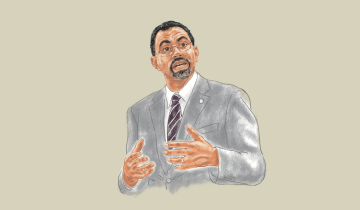Over the past 30 years, shared governance in higher education has been replaced with top-down governance structures in which administrators take greater responsibility for policymaking and fewer responsibilities are delegated to faculty. Higher education as a public good is at stake when shared governance—a model that draws from democratic values and lays out a way for faculty, boards and administrators to work together to set policy and institutional direction—is weakened. Increasingly, campus leaders are privileging prestige and revenue over access and success of students, community engagement and democratic participation.
Scandals at prominent universities have revealed cracks in the neoliberal governance system, one in which regulation is transferred away from the public and its stakeholders and progress is measured by profits. Pennsylvania State University, Michigan State University and USC are all visible cases where a breakdown in shared governance led to catastrophic ends: individual administrators prioritizing institutional reputation over student protection from sexual assault. Keeping egregious ethical and policy violations private rather than addressing employee misconduct led faculty, staff and students to lack confidence in senior leadership.
We cannot continue down this path—away from our democratic ideals. It is time for faculty, staff, students, administration and local communities to advocate for dialogue to co-determine how universities can best serve the public. USC is beginning this course through the Values Poll, which went out to all members of the community seeking their input about our existing and desired values. Town hall meetings and dialogues are being hosted to discuss what our values should be moving forward.
Inclusion and equal participatory power can restore higher education’s role as a public good. A new approach for universities must deal with the complexity of today’s campuses, which face more regulation, greater external pressures, declining funding and a need to adjust to new technologies, as well as more diverse student bodies. A fresh model must necessitate timely decisions, facilitate dialogue among stakeholders and include more groups in a single process. The only way higher education will succeed is to engage all voices in governance to ensure success, in both student learning and securing the bottom line.
“We cannot continue down this path — away from our democratic ideals.”
One of the most difficult challenges of creating a new model is a growth in power inequalities. Institutions of higher education need to examine policies that exclude important voices. Faculty have been de-professionalized and moved to semester-to-semester appointments; staff are largely silenced in order to meet the entrepreneurial goals of the university rather than students’ needs; and students themselves have been reduced to customers. Without re-professionalizing faculty and staff and recognizing their value, the creation of any shared governance process is on shaky ground. It is simply too easy for market and state voices to dominate in this new era. Engaging students as stakeholders, rather than treating them as passive customers or neglecting their concerns to the point of protest, will help reposition the university as a site of dialogue and citizenship development.
It will take leadership among those with authority to ensure redistribution of power and inclusion, coupled with grassroots efforts among faculty, staff and students to regain their voice and create positive, sustained change. Shared governance is not just important for institutional decision-making but also for higher education to meet its goals of developing educated citizens who can participate in a democracy.





